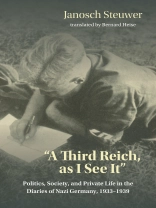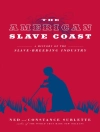With the beginning of the National Socialist dictatorship, Germany not only experienced a deep political turning point but the private life of Germans also changed fundamentally. The Nazi regime had far-reaching ideas about how the individual should think and act.
In ‘A Third Reich, as I See It’ Janosch Steuwer examines the private diaries of ordinary Germans written between 1933 and 1939 and shows how average citizens reacted to the challenges of National Socialism. Some felt the urge and desire to adapt to the political circumstances. Others felt compelled to do so. They all contributed to the realization of the vision of a homogeneous, conflict-free, and ‘racially pure’ society.
In a detailed manner and with a convincing sense of the bigger picture, Steuwer shows how the tense efforts of people to fit in, and at the same time to preserve existing opinions and self-conceptions, led to a close intertwining of the private and the political.
‘A Third Reich, as I See It’ offers a surprisingly new look at how the ideological visions of National Socialism found their way into the everyday reality of Germans.
Table des matières
Acknowledgments
List of Abbreviations and Terms
Introduction
Part One
1. The Social Dynamics of the ‘Seizure of Power’
2. The Search for a Personal Stance toward the Nazi Regime
3. Establishing a Personal Stance toward the Regime While under Social Observation
Part Two
4. The National Socialist Education Project
5. Political Self-Formation in the Nazi Education Project
Part Three
6. A New Political Culture in a New Political System
7. The Government and Its Volk
8. The Private and the Limits of the National Socialist Political System
Conclusion
Notes
Bibliography
Index of Persons
Index of Subjects
A propos de l’auteur
Janosch Steuwer is a historian of modern Germany and Europe. After positions at Universities of Bochum and Zurich, he is working at the Martin-Luther-University Halle-Wittenberg. His research interests cover a wide range of topics, such as the history of childhood since the 1970s and the history of National Socialism and its aftermath. In particular, he is concerned with the ways in which ordinary people experienced and understood the periods they lived through.












